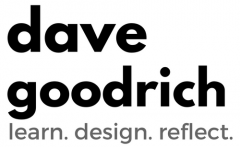I’m so excited to be heading to Washington DC next week for the OLC Accelerate conference! This will be my first time attending since the pandemic and I’ve missed it. I’m also looking forward to presenting on “Design For Change: Building DEI Training Hiring Committees At MSU,” which has been a rewarding project I have been able to be a part of this past year.

OLC Accelerate is one of the premier conferences for online learning professionals. It brings together over 2,000 attendees each year to discuss the latest trends, research, and best practices in online education. I’m really looking forward to learning from the excellent keynote speakers, thought leaders, and practitioners who will be presenting.
The timing couldn’t be better either. Our university is working to grow and improve our online programs. I plan on attending sessions on instructional design, online student engagement, and using data and analytics to enhance the student experience. I hope to discover new strategies and tools we can implement to take our online offerings to the next level.
Networking is another benefit I’m eager to tap into at the conference. I’ll have the chance to connect with peers from other institutions, vendors, and online learning experts. Building these relationships will be invaluable as we continue innovating. I’m excited for the opportunity to exchange ideas and get feedback on the work we’re doing.
Washington DC is such an amazing city as well. I’m looking forward to exploring some of the history and culture during my free time at the conference. This will be my first visit to the nation’s capital. I can’t wait to see the monuments and museums, take in the architecture, and sample local cuisine.
Attending OLC Accelerate is an investment in my professional development and growth as an online learning leader. I’m confident I’ll return with fresh inspiration, knowledge, and contacts that will help strengthen our university’s online offerings. I can’t wait to immerse myself in the latest ideas and connect with fellow practitioners who are as passionate about digital education as I am. It’s going to be an amazing experience! I’ll be Tweeting (or Xing is it now?) from my account here during the conference next week and look forward to meeting you in person if you are there!
See you soon!
-dave



 Knowledge for Sale
Knowledge for Sale STEM Alliance Fall Reception
STEM Alliance Fall Reception
